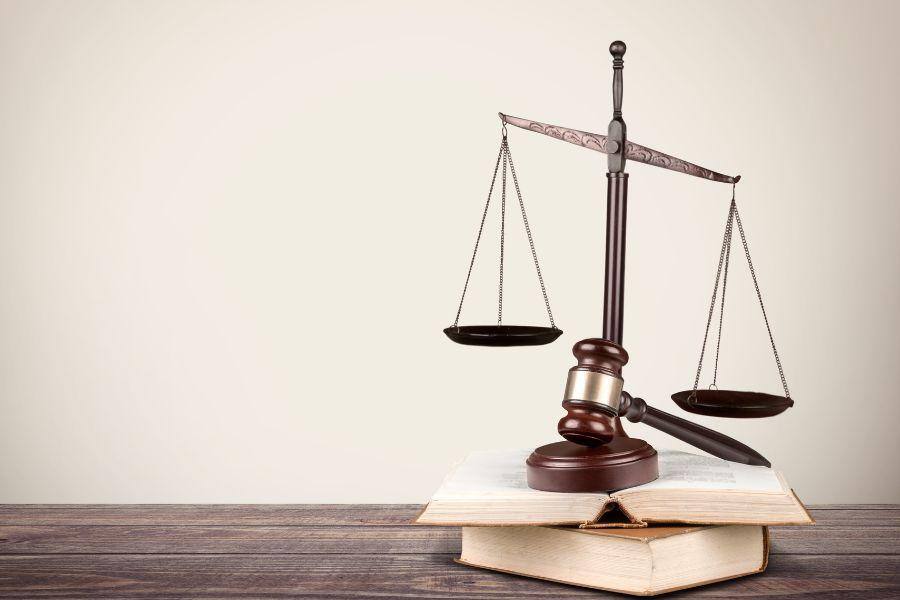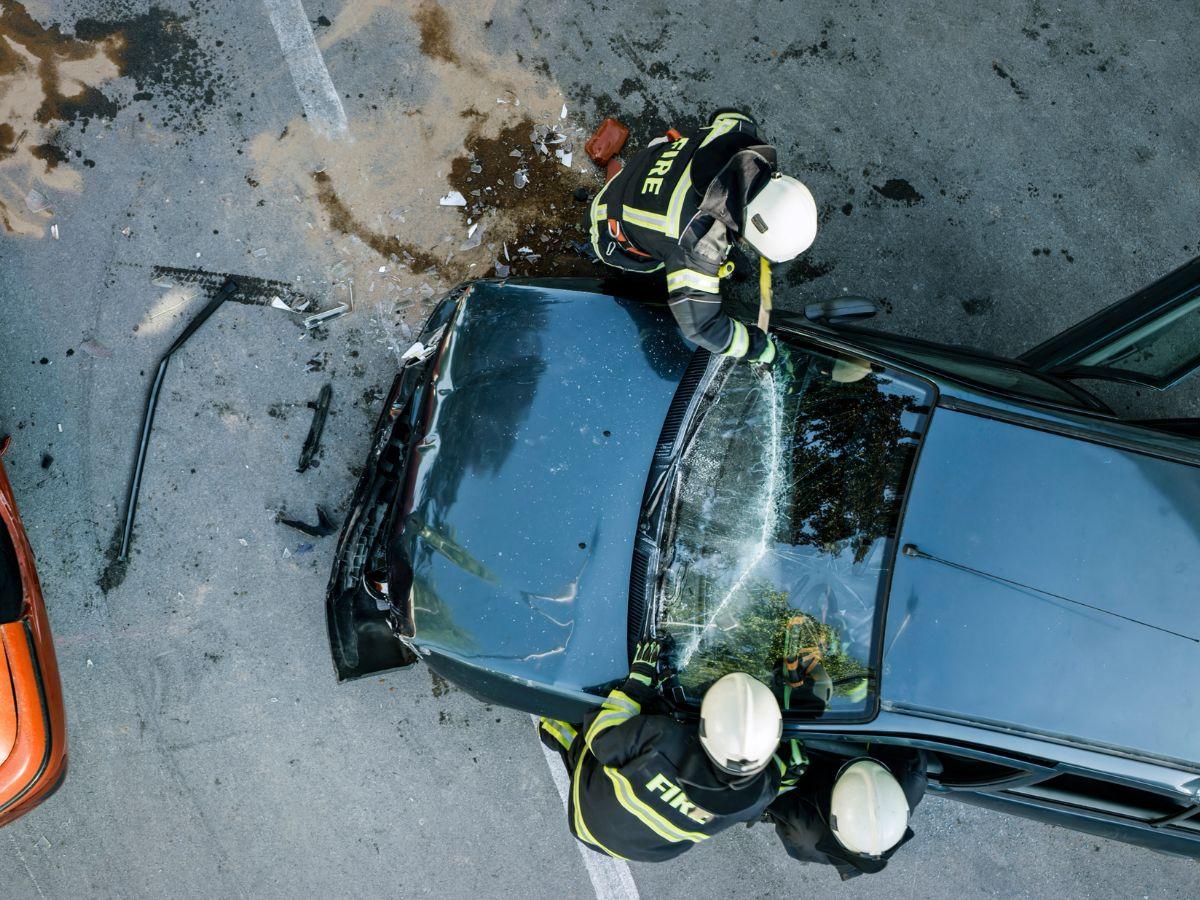Exploring How Fault In A Car Accident Is Determined In Georgia
To secure maximum compensation in court for car accident victims, it is essential to identify a clear determining factor that establishes who exactly...
Key Takeaways:
It's crucial to stay cautious and avoid admitting fault, even unintentionally, after a car accident.
Admitting fault or making definitive statements at the accident scene can severely impact your personal injury claim, insurance claim, and legal liability.
Insurance companies, law enforcement, and accident investigators will analyze the evidence and determine liability for damages.
In this article, we'll explore why admitting fault after a car accident is a huge mistake, how to handle the accident scene without doing so, and how an experienced car accident lawyer can help protect your rights and secure fair compensation.
Learn more about the benefits of hiring a car accident attorney.
Table Of Contents
Admitting fault after a car accident is a huge mistake that can have severe legal and financial consequences.
If you admit fault, even inadvertently, you could be held legally responsible for damages, including bodily injury and property damage.
This admission can impact your personal injury claim and your ability to seek compensation for injuries.
Under comparative negligence laws, even partial responsibility can reduce your potential compensation.
Contributory negligence laws also further complicate matters.
In some cases, if you're found even partially at fault, it could reduce or eliminate your chances of recovering damages.
This can affect the outcome of the insurance claims process and your legal options.
An admission of fault could also influence insurance adjusters and how they handle your claim, potentially leading to lower settlements.
Admitting fault can also cause your insurance premiums to skyrocket, as your auto insurer may see you as a higher risk.
Insurance companies often use such admissions to deny or minimize claims, making it difficult to secure fair compensation.
This is why it’s essential to avoid admissions of guilt until all evidence has been reviewed.

An admission of fault occurs when a driver explicitly or indirectly takes responsibility for causing a car accident.
This can happen through verbal statements, such as saying "I'm sorry," which may be interpreted as an admission of guilt by law enforcement, insurance adjusters, or the other parties involved.
Even making definitive statements about what happened at the accident scene before all the facts are known can harm your case.
Common mistakes accident victims make include apologizing or offering explanations that could be used against them in the insurance claims process.
For example, saying "I didn’t see you" or "I was distracted" can be seen as an inadvertent admission of fault.
These premature admissions can heavily influence how insurance companies and law enforcement officers determine liability for damages and injuries.
Emotional responses after an accident are understandable but can lead to hasty statements.
Shock, confusion, or guilt can push people to say things they later regret.
It's important to stay calm and avoid making statements that might later be used as an admission of guilt.
Let insurance investigators and experienced car accident lawyers review the evidence before making any declarations.
Carefully handling the accident scene is crucial to protecting your rights and avoiding an admission of fault.
First, remain calm and composed, no matter how stressful the situation may be.
Avoid making definitive statements about the accident, such as "I didn’t see you" or "I’m sorry," as these can be interpreted as admissions of guilt.
Instead, focus on exchanging insurance details with the other party and cooperate fully with law enforcement officers who arrive at the scene.
Gathering relevant evidence is key.
Take photos of the accident scene, including any damage to the vehicles, skid marks, and the position of the cars.
Document road conditions, weather conditions, and any contributing factors, like poor visibility or slick roads.
Witnesses can also be invaluable, so make sure to collect witness statements and contact information.
And remember, if available, request a copy of the police report, as it will be a crucial part of the insurance claims process.
This evidence will help insurance investigators and your experienced car accident attorney build a strong case without relying on any premature admissions of fault.
Staying calm and focusing on collecting facts will ensure that liability is determined through proper legal and insurance channels.
After a car accident, it's important to be mindful of what you say to avoid making any admissions of fault or legal responsibility.
When speaking to law enforcement, provide only factual statements.
Describe the events leading up to the accident without making assumptions about who was at fault. For example, instead of saying, "I didn’t see the other driver," focus on neutral facts like, "The other vehicle came from the right."
Avoid apologies or explanations that could be interpreted as an admission of guilt.
When dealing with your insurance provider, the same caution applies.
Stick to the facts and avoid making definitive statements about fault or liability.
Let the insurance adjusters and insurance investigators gather and review the evidence.
Remember, even casual comments can reduce your compensation or increase your insurance premiums.
Providing an accurate statement without jumping to conclusions is crucial for protecting your claim.
A legal expert can be your trusted guide through this process.
They can assist in reviewing the official accident report and handle communication with insurance companies to ensure your rights are protected during the insurance claims process.
With their expertise, you can navigate complex legalities with confidence.

Insurance companies, insurance adjusters, and insurance investigators are vital in determining who is liable for damages in a car accident.
After an accident, they gather evidence, including the police report, witness statements, and any physical evidence from the accident scene.
They aim to determine the degree of fault for each party involved, which will directly impact the outcome of the insurance claims process and the compensation you may receive.
It’s essential to let the insurance company and law enforcement officers make the determination of liability instead of making assumptions yourself.
Avoid making any premature admissions of fault or definitive statements about who caused the accident, as this can severely affect your insurance claim.
Even a simple apology could be taken as an admission of guilt and used against you later by your auto insurer or the other party’s insurance company.
Providing inaccurate information or making statements before all facts are clear can have significant financial consequences, such as higher insurance premiums or a denied claim.
Working with a car accident attorney can help ensure your rights are protected and that you avoid making statements that could negatively impact your case.
Hiring an experienced car accident attorney is one of the smartest decisions you can make after an accident.
An accident lawyer can help you navigate the legal process and avoid common mistakes, like making inadvertent admissions of fault.
They ensure your rights are protected throughout the insurance claims process and work toward securing a fair settlement for your injuries and property damage.
Accident lawyers also collaborate with accident reconstruction experts to determine the degree of fault in more complex cases, such as parking lot accidents, U-turn accidents, or multi-car collisions.
These experts gather crucial evidence and evaluate factors like road conditions, weather conditions, and vehicle positioning to build a strong case for you.
With their assistance, your personal injury lawyer can challenge the findings of insurance adjusters and insurance investigators who may try to reduce your compensation.
Having a skilled attorney on your side helps you avoid making statements that could harm your claim and ensure the fairest possible outcome.
Their experience handling accident claims means they know how to negotiate with insurance companies to maximize your compensation for injuries.
Admitting fault after a car accident can have serious legal and financial consequences that affect your personal injury claim, insurance claim, and liability for damages.
To protect your rights and ensure fair compensation for bodily injury and property damage, avoiding making premature statements at the accident scene is crucial.
Always allow insurance adjusters and law enforcement officers to assess the situation based on evidence.
If you’ve been involved in an accident, consulting with an experienced car accident lawyer is essential.
The Cotto Law Group offers a free consultation to help you navigate the legal process and secure the compensation you deserve.
Protect your future by getting the legal support you need.
You should never admit fault in a car accident because doing so can negatively impact your insurance claim and legal liability, potentially reducing or eliminating your compensation for damages and injuries.
To describe an accident without admitting fault, stick to the facts. Provide details like the location, time, and what happened, but avoid statements that imply responsibility, such as "I didn't see the other car."
You shouldn't apologize after a car accident because an apology can be interpreted as an admission of guilt, which could be used against you in the insurance claims process or in legal proceedings.
You should never leave the scene of a car accident because doing so is illegal and can result in criminal charges, fines, or a suspended license, as well as damage your chances of defending yourself in any claims or lawsuits.

To secure maximum compensation in court for car accident victims, it is essential to identify a clear determining factor that establishes who exactly...

Key Takeaways: Over-reliance on safe driving apps can create a false sense of security, leading drivers to believe that technology alone will...

Key Takeaways: Claim vs. Lawsuit: Insurance claims are generally quicker and cover immediate damages through your provider, while lawsuits can...